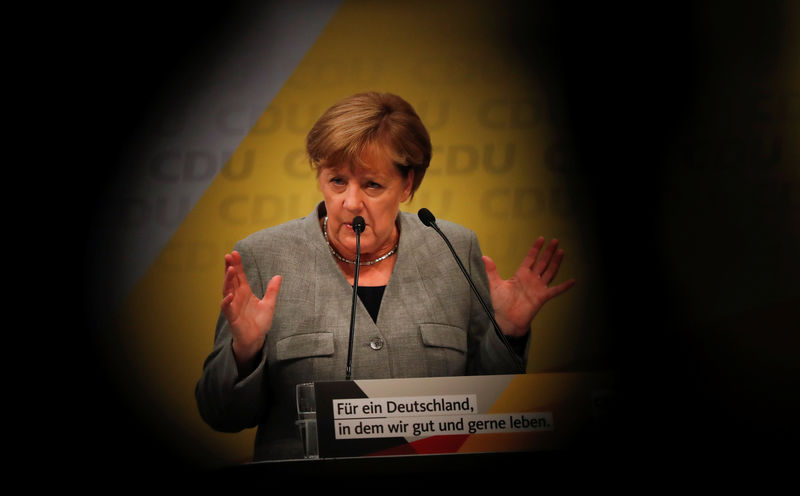BERLIN (Reuters) - Germany must eventually follow other European countries in banning new diesel cars from the roads, German Chancellor Angela Merkel said, conceding for the first time that diesel's days were numbered in the wake of the emissions scandals.
Merkel's concession, in an interview with Super Illu magazine, followed mounting pressure over the summer on Germany's auto makers over their use of devices to conceal diesel vehicles' true emissions levels from regulators.
"I don't want to name an exact year," she said, resuming her election campaign after a three-week holiday. But Britain and France's plans to phase out internal combustion-driven cars by 2040 "were the right approach," she said.
The fate of the auto sector, Germany's biggest exporter and provider of some 800,000 jobs, has become a hot issue in the Sept. 24 election, when Merkel is seeking a fourth term in office, with politicians accusing auto executives of failing to find an adequate response to the emissions' scandal.
Agreement was reached this month to overhaul engine software on 5.3 million diesel cars to cut pollution and repair the industry's reputation, battered by Volkswagen's admission two years ago that it had cheated U.S. emission tests.
Ministers and government spokespeople had declined to commit to a phase-out of diesel cars during August, when Merkel was on holiday in the Italian Alps.
Her absence drew criticism from her predecessor Gerhard Schroeder, who said he would have returned from vacation to "take matters in hand".
Returning to a theme she aired in Dortmund at the weekend, Merkel said the car industry must win back trust, including by offering trade-in bonuses and software updates.
Consumers, who had been "deceived", must get the environmental emissions performance they had been promised, she added.
But tax breaks favoring diesel cars would remain in place for the time being, since they emitted less carbon dioxide than petrol engines, she said.
Though Germany's giant car industry has contributed to a stellar economic performance that looks likely to get Merkel re-elected, its auto makers have been slower than rivals to make the shift to electric traction.

Merkel added that Germany should focus in coming years on building the charging stations and associated infrastructure around the country that would be needed as electric cars became more mainstream.